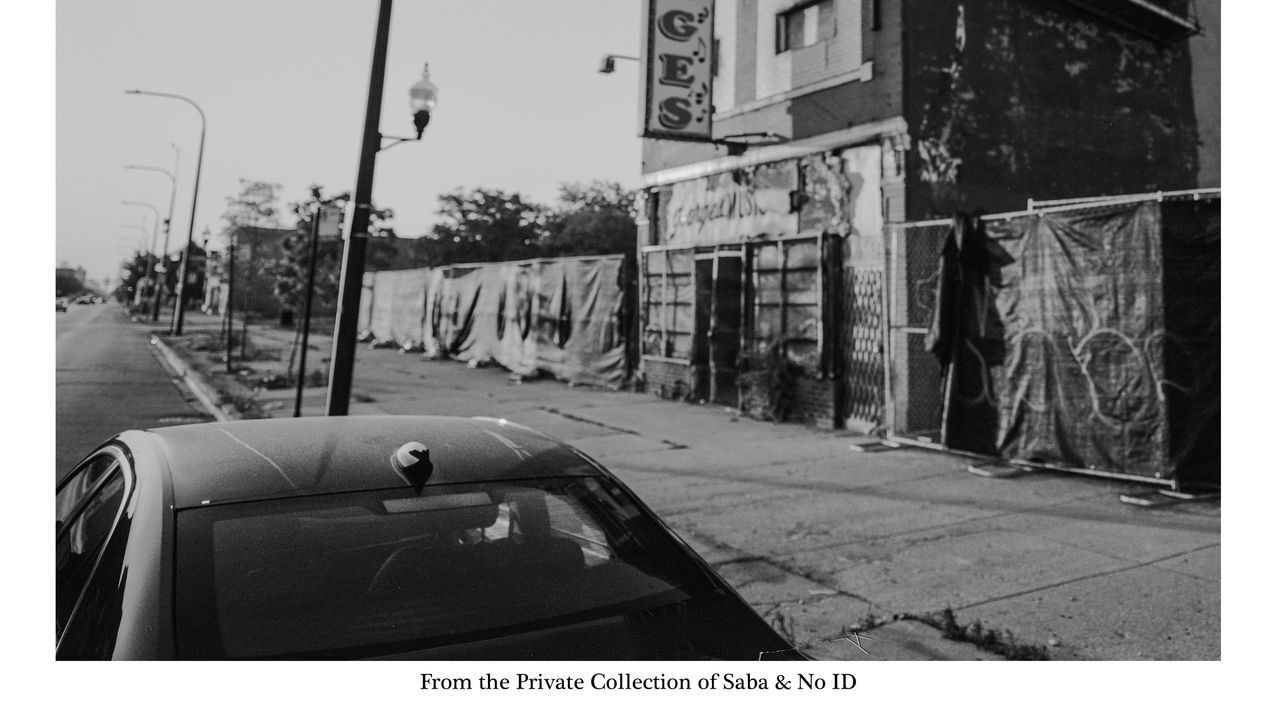It tracks that Saba and No ID would take a photography class together. Both of the Chicago-raised, Los Angeles-based artists pay close attention to the ephemeral, building songs from snatches of memory and rhythm. For Saba, focusing on the small things helps to settle racing thoughts and preserve everyday joys. “Life I be taking for granted, capture the moment, the Canon,” he rapped on 2018’s “SMILE,” chiding himself to be mindful. For No ID, observation is the bedrock of producing. The former DJ has described production as the art of “studying emotional reactions,” citing the way house music crowds and rappers picking beats give immediate feedback: “The speaker never lies. When you put the speaker on and something comes out, either people move or they don’t.”
That attentive approach has helped the producer sustain one of the most unique careers in rap. No ID has variously been Kanye’s mentor, Jermaine Dupri’s understudy, and Big Sean’s and Vince Staples’ A&R. He helped usher in rap’s wintry Auto-Tune era through his work on 808s and Heartbreak and produced Jay-Z’s dad-rap missive “D.O.A.,” later pushing the notoriously composed rapper to unspool on 4:44. He’s been so versatile for so long that when he pops up on albums as varied as Renaissance, Brent Faiyez’s Wasteland, and Killer Mike’s Michael, you expect him to be there. From the Private Collection of Saba & No ID goes further, merging and morphing the artists’ styles. The album plays like a love letter to Chicago rap, bridging the sample-driven boom-bap of No ID’s production for Common with the singsong lyricism of the YOUmedia scene that shaped Saba. The pair romps through this shared history like pirates, drunken with glee.
Saba and No ID initially imagined the collab as a mixtape, but as they befriended each other and continued to record, it became an album. The title’s suggestion of wine cellars and Sotheby’s auctions is tongue in cheek: Although the svelte and opulent beats do bring to mind the plush arrangements of records like 4:44, A Written Testimony, and Nas’ King’s Disease records, From the Private Collection isn’t mogul rap. Saba’s idea of comfort foregrounds proximity and connection over luxury: “Any moment sentimental now, when you with the niggas who was missing out,” he says early on, establishing the appreciative mood.
